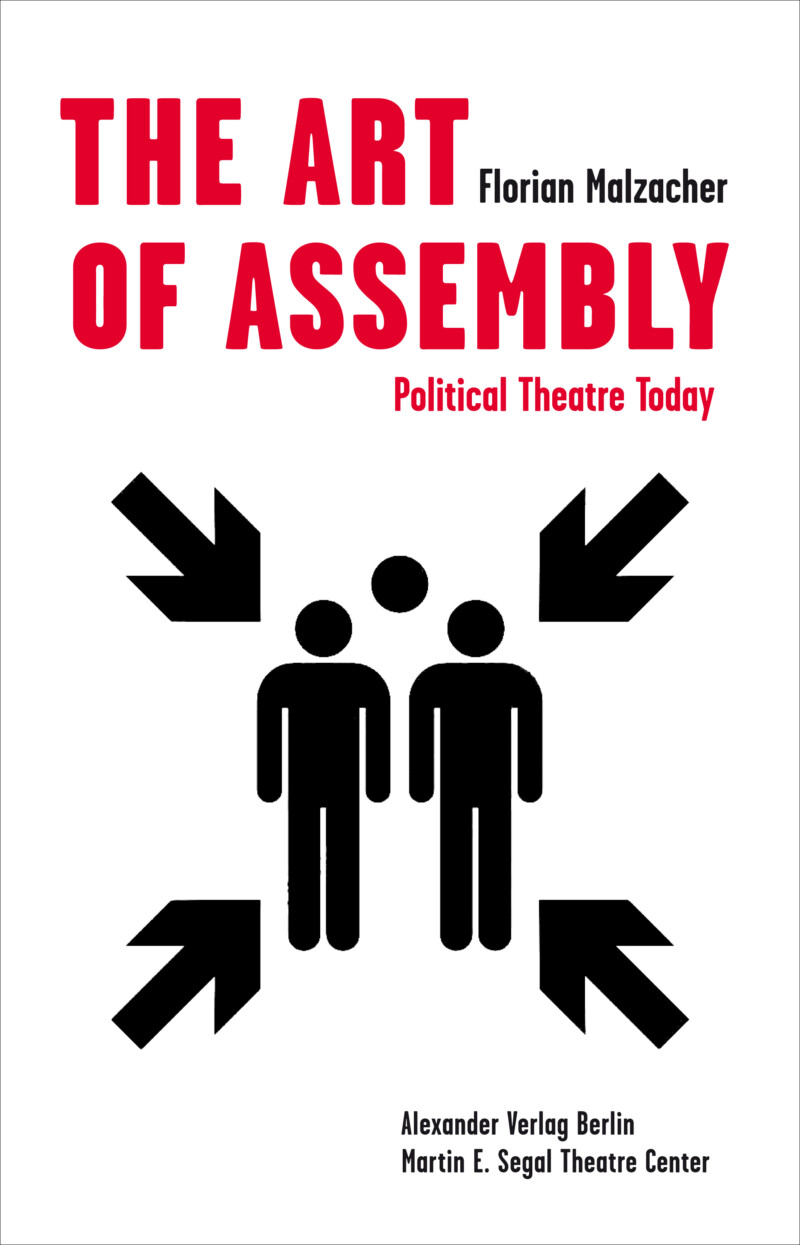It matters that as bodies […] we arrive together in public. As bodies we suffer, we require food and shelter, and as bodies we require one another in dependency and desire. So this is a politics of the public body, the requirements of the body, its movement and its voice. […] We sit and stand and move as the popular will, the one that electoral politics has forgotten and abandoned. But we are here, time and again, persisting, imagining the phrase, ‘we the people’.
Judith Butler at Occupy Wall Street (2011)
Soon it was no longer stage versus auditorium, but one big assembly hall, one big battlefield, one big demonstration.
Erwin Piscator, The Political Theatre (1929)
The last ten to fifteen years have been marked by countless social and political movements around the world. Whether in Tunis, Cairo, Madrid or Lisbon, in Athens, New York, London or Istanbul, in post-Fukushima Tokyo, amidst Niemeyer’s iconic parliamentary architecture in Brasilia, under the umbrellas of Hong Kong or on the streets of Minneapolis: what characterises the majority of these movements and distinguishes them from many of their predecessors is their search for alternative forms of coming together, of arguing and deciding, of negotiating community and society. The potential of these assemblies lies not merely in their demands. They change reality not only by designing radical models of democracy but simply by living them.

At the same time, a new interest in models of assembly and the public sphere has awakened in the arts, in concepts in which society is not only mirrored, but constantly tried out, performed, tested, rethought or even reinvented. Court hearings on artistic freedom, religion or censorship; summit meetings at which climate targets or cultural policy are negotiated; parliaments in which the otherwise voiceless raise their voices: staging forms of gathering that tread the fine line between art and reality, theatre in particular has become a democratic arena of radical imagination.
Since 2021, the ongoing nomadic lecture series and internet platform “The Art of Assembly” has brought together more than 90 protagonists from various fields of art, activism and theory on stages in cities like Vienna, Berlin, New York, Oslo, Helsinki, New Delhi, Manchester or Bucharest to speculate on the potential and limits of human assemblies at a time when there seem to be no certainties.
Florian Malzacher is a curator, dramaturg, writer, as well as professor of dramaturgy and curatorial practice at the Karlsruhe University of Art and Design (since 2024). 2013 – 2017 he was artistic director of Impulse Theater Festival (Cologne, Düsseldorf and Mülheim/Ruhr), and 2006 – 2012 co-programmer of the multidisciplinary arts festival steirischer herbst (Graz). He (co-)curated e.g. the 4th and 5th International Summer Academy (Mousonturm Frankfurt, 2002 and 2004), Dictionary of War (2006/07), “Truth is Concrete” (Graz, 2012), Artist Organisations International (HAU Berlin, 2015), Appropriations (Ethnological Museum Berlin, 2014), Sense of Possibility on the occasion of the 100th anniversary of the revolution (St. Petersburg, 2017), Training for the Future (since 2018 with Jonas Staal), After Supervising the Machinery (2020). As a dramaturge he worked with artists like Rimini Protokoll (DE), Lola Arias (ARG), Mariano Pensotti (ARG), and Nature Theater of Oklahoma (USA). Florian Malzacher has edited and written numerous essays and books on theatre and performance and on the relationship between art and politics. His latest publications include The Art of Assembly. Political Theatre Today (Alexander Verlag Berlin, 2020/23).
Logo and Banners by Philine Rinnert & Raul Walch. Webseite by Marco Morgenroth & herr/frau/firma.
Specials thanks to brut Vienna for initiating and supporting this series.
